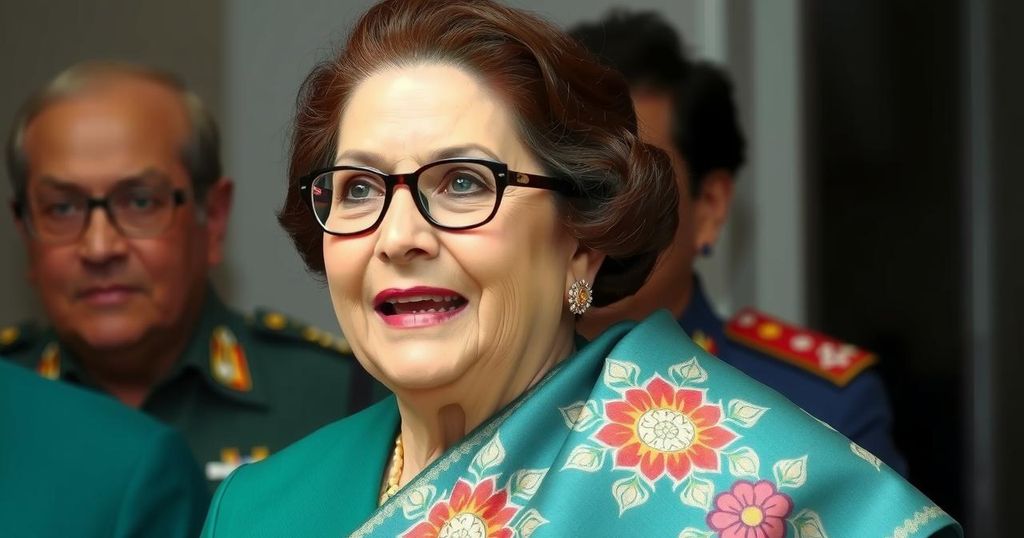Khaleda Zia, the former Prime Minister of Bangladesh, departs for medical treatment in London amid significant health issues. Her exit occurs during a time of political uncertainty following her rival Sheikh Hasina’s ousting. Zia has faced corruption charges many allege were politically motivated, and the interim government under Muhammad Yunus is preparing for upcoming elections. Zia’s son, Tarique Rahman, is expected to continue her political legacy in her absence.
Bangladesh’s former Prime Minister Khaleda Zia has departed for medical treatment in London, driven by serious health issues, including liver cirrhosis, cardiac disease, and kidney problems. Her departure comes at a pivotal time in Bangladeshi politics as the country grapples with uncertainty following the ousting of her political rival, Sheikh Hasina. Zia, who was recently released from prison on bail after a government order, had been denied the opportunity to receive treatment abroad until now. Her exit was facilitated by a special air ambulance dispatched by Qatar’s emir, with her supporters flocking to bid her farewell, reflecting her enduring influence in the nation.
Zia’s political journey has been tumultuous, particularly after her conviction on corruption charges during Hasina’s administration. Many supporters assert that the allegations were politically motivated. As Zia journeys to London, she leaves behind an interim government led by Nobel laureate Muhammad Yunus, which is preparing for elections expected to occur either this December or in early 2026. In the absence of both major political figures, there are growing concerns regarding the potential rise of Islamist groups within the country.
Historically, Khaleda Zia has played a significant role in Bangladesh’s political landscape, being the widow of Ziaur Rahman, the country’s former military leader and president. Her legacy and influence are noteworthy, particularly since Hasina’s departure into exile amid accusations linked to violent political protests. Zia’s son, Tarique Rahman, is anticipated to take a prominent role within her party and in future elections, continuing the dynastic political narrative within the region. With Zia’s hospitalization and Hasina’s absence, a significant vacuum has emerged in Bangladeshi politics, potentially altering the country’s political dynamics.
Khaleda Zia’s departure from Bangladesh unfolds against a backdrop of political upheaval following the fall of her longstanding rival, Sheikh Hasina. Zia and Hasina have been central figures in Bangladeshi politics, embodying the enduring rivalry that has characterized the nation’s socio-political landscape for decades. Zia’s recent health issues highlight the personal battles faced by leaders as they navigate the complexities of power, influence, and governance. The interim government led by Muhammad Yunus signifies a shift towards new political dynamics that could change the future trajectory of governance in Bangladesh, particularly in light of rising Islamist sentiments among the populace.
Khaleda Zia’s medical departure to London marks a significant moment in Bangladesh’s tumultuous political scenery. With her health challenges, growing political uncertainty, and the interim government’s preparations for upcoming elections, the landscape of Bangladeshi politics is poised for potential realignment. Zia’s exit, alongside the absence of Sheikh Hasina, creates a unique situation ripe for the emergence of alternative political forces, including the potential rise of Islamist movements. The outcomes of these developments remain to be seen as the nation prepares for critical electoral decisions in the near future.
Original Source: m.economictimes.com






